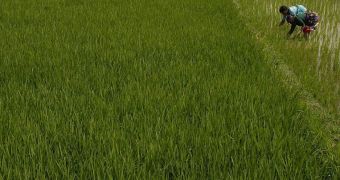A group of experts based at the Emory University, in the United States, argues that agriculture played a direct role in reshaping the stature and health of humans living thousands of years ago. The trend appears to be consistent around the world.
In a new survey of existing studied, the researchers found a consistent, global trend, that saw people becoming smaller as they began harvesting crops. Their health also deteriorated, though the reasons why this happened are still somewhat mysterious.
What is really interesting about these aspects is that they held true regardless of the type of crops the human began to cultivate, or the location where the fields were placed. Experts agree that the onset of agriculture took place around 10,000 years ago.
The new review will be published in an upcoming issue of the scientific journal Economics and Human Biology. The work was led by Emory University graduate student in anthropology Amanda Mummert.
“This broad and consistent pattern holds up when you look at standardized studies of whole skeletons in populations. Many people have this image of the rise of agriculture and the dawn of modern civilization, and they just assume that a more stable food source makes you healthier,”she says.
“But early agriculturalists experienced nutritional deficiencies and had a harder time adapting to stress, probably because they became dependent on particular food crops, rather than having a more significantly diverse diet,” the expert adds.
While agriculture was undeniably one of the most important inventions in human history, the fact remains that it also brought about a slew of risk factors that humankind was simply unprepared for.
These included living very close to animals, the emergence of new diseases, the onset of sanitation problems caused by so many people living together, the rise of infectious diseases, and so on.
Together, these factors place a lot of stress on our species, which was forced to adapt. It did so by lowering its height, and also dying more often, but eventually that bridge was crossed. After that happened, average heights began growing again.
“Culturally, we're agricultural chauvinists. We tend to think that producing food is always beneficial, but the picture is much more complex than that,” Emory anthropologist and review coauthor George Armelagos explains.
“Humans paid a heavy biological cost for agriculture, especially when it came to the variety of nutrients. Even now, about 60 percent of our calories come from corn, rice and wheat,” he concludes.

 14 DAY TRIAL //
14 DAY TRIAL //